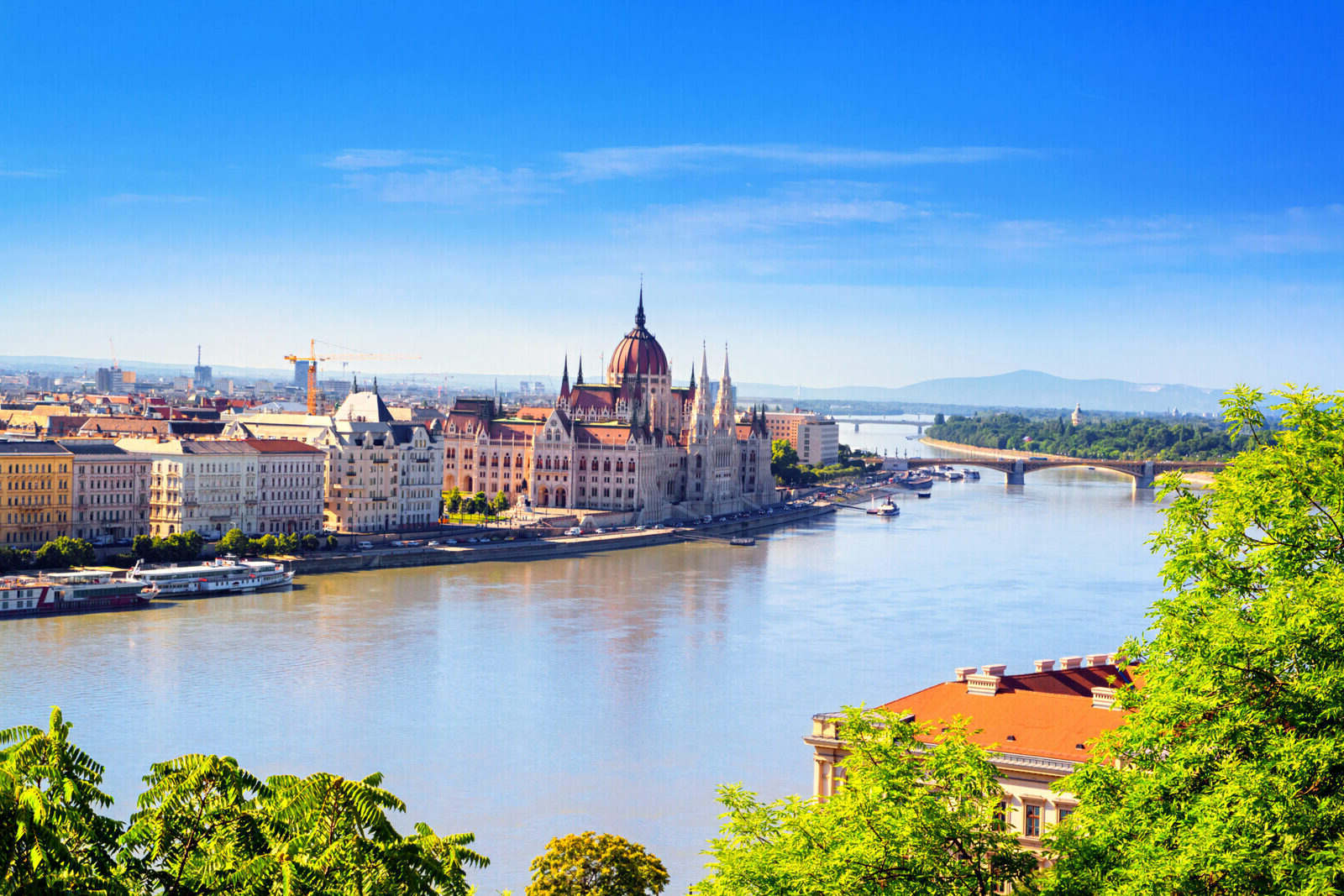
Hungary, a landlocked country in Central Europe, boasts a rich history and vibrant culture. Ever wondered what makes this nation unique? Hungary is known for its stunning architecture, mouth-watering cuisine, and fascinating traditions. From the majestic Danube River to the bustling streets of Budapest, there's always something intriguing to learn. Did you know that Hungary has one of the oldest languages in Europe? Or that it’s home to the largest thermal water cave system in the world? Whether you're a history buff, a foodie, or just curious, these 30 facts about Hungary will surely pique your interest. Ready to dive into the heart of Europe? Let's get started!
Key Takeaways:
- Hungary's rich history dates back over a thousand years, from its founding in 895 AD to its membership in the European Union in 2004. The country's cultural heritage, natural wonders, and culinary delights make it a unique and fascinating destination.
- Hungary's contributions to the world include the invention of the Rubik's Cube, the ballpoint pen, and significant achievements in sports. The country's unique traditions, architectural marvels, and modern innovations make it a dynamic and vibrant nation.
Hungary's Rich History
Hungary boasts a history that spans over a thousand years. From ancient tribes to modern times, this country has seen it all.
- Hungary was founded in 895 AD by Árpád, the leader of the Hungarian tribes.
- The Kingdom of Hungary was established in 1000 AD when Stephen I was crowned as its first king.
- Hungary was part of the Austro-Hungarian Empire from 1867 until its dissolution in 1918.
- The country has been a member of the European Union since 2004.
Cultural Heritage
Hungary's culture is a blend of Eastern and Western influences, making it unique and fascinating.
- Budapest, the capital, is often called the "Paris of the East" due to its stunning architecture and vibrant culture.
- The Hungarian language, Magyar, is one of the few non-Indo-European languages in Europe.
- Hungary is famous for its thermal baths, with over 1,000 hot springs across the country.
- The country has a rich tradition of folk music and dance, which is still celebrated today.
Natural Wonders
Hungary's landscape is diverse, offering everything from mountains to plains and lakes.
- Lake Balaton, the largest lake in Central Europe, is often referred to as the "Hungarian Sea."
- The Hortobágy National Park is the largest continuous natural grassland in Europe.
- Hungary is home to nine UNESCO World Heritage Sites, including the Buda Castle and the Hortobágy National Park.
- The Danube River, Europe's second-longest river, flows through Hungary, splitting Budapest into Buda and Pest.
Culinary Delights
Hungarian cuisine is hearty and flavorful, with dishes that have stood the test of time.
- Goulash, a traditional Hungarian stew, is one of the country's most famous dishes.
- Paprika, a spice made from dried peppers, is a staple in Hungarian cooking.
- Hungary is known for its pastries, like the chimney cake (kürt?skalács) and Dobos torte.
- Tokaji wine, produced in the Tokaj region, is one of the oldest and most famous wines in the world.
Innovations and Contributions
Hungarians have made significant contributions to various fields, from science to sports.
- Ern? Rubik, a Hungarian architect, invented the Rubik's Cube in 1974.
- Hungary has won more Olympic medals per capita than any other country.
- The ballpoint pen was invented by Hungarian journalist László Bíró in 1938.
- Hungarian physicist Edward Teller is known as the "father of the hydrogen bomb."
Unique Traditions
Hungary has many unique traditions that reflect its rich cultural heritage.
- The Busójárás festival in Mohács celebrates the end of winter with elaborate masks and costumes.
- Hungary celebrates its national day on March 15th, commemorating the 1848 revolution against Austrian rule.
- The Hungarian wedding tradition includes a dance called the "money dance," where guests pin money to the bride's dress.
- St. Stephen's Day on August 20th is a major holiday, celebrating the foundation of the Hungarian state.
Architectural Marvels
Hungary's architecture is a testament to its rich history and cultural diversity.
- The Parliament Building in Budapest is one of the largest and most beautiful parliamentary buildings in the world.
- The Fisherman's Bastion offers stunning views of Budapest and is a popular tourist attraction.
- The Esztergom Basilica is the largest church in Hungary and a masterpiece of neoclassical architecture.
- The Széchenyi Chain Bridge was the first permanent bridge to connect Buda and Pest.
Modern Hungary
Despite its ancient roots, Hungary is a modern country with a dynamic economy and vibrant culture.
Hungary's Rich Tapestry of Facts
Hungary's history, culture, and contributions to the world are truly fascinating. From its invention of the Rubik's Cube to its rich culinary traditions, there's so much to appreciate. The Hungarian language, with its unique roots, stands out in Europe. Budapest's thermal baths offer relaxation steeped in history, while the Danube River adds scenic beauty. Hungary's scientific achievements and Nobel laureates highlight its intellectual prowess. The Hungarian Parliament Building is an architectural marvel, and the Hortobágy National Park showcases natural beauty. Whether you're intrigued by historical landmarks, cultural festivals, or natural wonders, Hungary has something for everyone. This small yet vibrant country continues to leave a significant mark on the world stage. So, next time you think about travel or history, remember Hungary's rich tapestry of facts.
Frequently Asked Questions
Was this page helpful?
Our commitment to delivering trustworthy and engaging content is at the heart of what we do. Each fact on our site is contributed by real users like you, bringing a wealth of diverse insights and information. To ensure the highest standards of accuracy and reliability, our dedicated editors meticulously review each submission. This process guarantees that the facts we share are not only fascinating but also credible. Trust in our commitment to quality and authenticity as you explore and learn with us.


